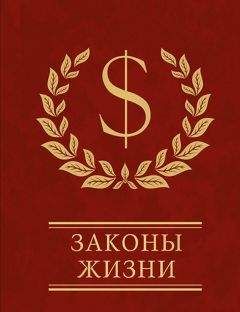Дарон Аджемоглу - Почему одни страны богатые, а другие бедные. Происхождение власти, процветания и нищеты
Карта 20. Daron Acemoglu, James A. Robinson, and Rafael J. Santos (2010), «The Monopoly of Violence: Evidence from Colombia», доступна в Сети по адресу: http://scholar.harvard.edu/jrobinson/files/jr_formationofstate.pdf.
Использованная литература
Abraham, Arthur, and Habib Sesay (1993). “Regional Politics and Social Service Provision Since Independence.” In C. Magbaily Fyle, ed. The State and the Provision of Social Services in Sierra Leone Since Independence, 1961–1991. Oxford, U. K.: Codesaria.
Acemoglu, Daron (2005). “Politics and Economics in Weak and Strong States.” Journal of Monetary Economics 52: 1199–226.
— (2008). “Oligarchic Versus Democratic Societies.” Journal of European Economic Association 6: 1–44.
Acemoglu, Daron, Davide Cantoni, Simon Johnson, and James A. Robinson (2010). “From Ancien Regime to Capitalism: The Spread of the French Revolution as a Natural Experiment.” In Jared Diamond and James A. Robinson, eds. Natural Experiments in History. Cambridge, Mass.: Harvard University Press.
— (2011). “Consequences of Radical Reform: The French Revolution.”American Economic Review, forthcoming.
Acemoglu, Daron, Simon Johnson, and James A. Robinson (2001). “The Colonial Origins of Comparative Development: An Empirical Investigation.” American Economic Review 91: 1369–1401.
— (2002). “Reversal of Fortune: Geography and Institutions in the Making of the Modern World Income Distribution.” Quarterly Journal of Economics 118: 1231–94.
— (2003). “An African Success Story: Botswana.” In Dani Rodrik, ed. In Search of Prosperity: Analytic Narratives on Economic Growth. Princeton, N. J.: Princeton University Press.
— (2005a). “Rise of Europe: Atlantic Trade, Institutional Change and Economic Growth.” American Economic Review 95: 546–79.
— (2005b). “Institutions as the Fundamental Cause of Long — Run Growth.” In Philippe Aghion and Steven Durlauf, eds. Handbook of Economic Growth. Amsterdam: North — Holland.
Acemoglu, Daron, Simon Johnson, James A. Robinson, and Pablo Querubin (2008). “When Does Policy Reform Work? The Case of Central Bank Independence.” Brookings Papers in Economic Activity, 351–418.
Acemoglu, Daron, Simon Johnson, James A. Robinson, and Pierre Yared (2008). “Income and Democracy.” American Economic Review 98: 808–42.
— (2009). “Reevaluating the Modernization Hypothesis.” Journal of Monetary Economics 56: 1043–58.
Acemoglu, Daron, and James A. Robinson (2000a). “Why Did the West Extend the Franchise? Growth, Inequality and Democracy in Historical Perspective.” Quarterly Journal of Economics 115: 1167–99.
— (2000b). “Political Losers as Barriers to Economic Development.” American Economic Review 90: 126–30.
— (2001). “A Theory of Political Transitions.” American Economic Review 91: 938–63.
— (2006a). Economic Origins of Dictatorship and Democrac y. New York: Cambridge University Press.
— (2006b). “Economic Backwardness in Political Perspective.” American Political Science Review 100: 115–31.
— (2008a). “Persistence of Power, Elites and Institutions.” American Economic Review 98: 267–93.
— (2008b). “The Persistence and Change of Institutions in the Americas.” Southern Economic Journal 75: 282–99.
Acemoglu, Daron, James A. Robinson, and Rafael Santos (2010). “The Monopoly of Violence: Evidence from Colombia.” Unpublished.
Acemoglu, Daron, and Alex Wolitzky (2010). “The Economics of Labor Coercion.” Econometric, 79: 555–600.
Aghion, Philippe, and Peter Howitt (2009). The Economics of Growth. Cambridge, Mass.: MIT Press.
Alexander, Jocelyn (2006). The Unsettled Land: State-making and the Politics of Land in Zimbabwe, 1893–2003. Oxford, U. K.: James Currey.
Allen, Robert C. (2003). Farm to Factory: A Reinterpretation of the Soviet Industrial Revolution. Princeton, N. J.: Princeton University Press.
— (2009a). The British Industrial Revolution in Global Perspective. New York: Cambridge University Press.
— (2009b). “How Prosperous Were the Romans? Evidence from Diocletian’s Price Edict (301 AD).” In Alan Bowman and Andrew Wilson, eds. Quantifying the Roman Economy: Methods and Problems. Oxford, U. K.: Oxford University Press.
Alston, Lee J., and Joseph P. Ferrie (1999). Southern Paternalism and the Rise of the American Welfare State: Economics, Politics, and Institutions in the South. New York: Cambridge University Press.
Amsden, Alice H. (1992). Asia’s Next Giant, New York: Oxford Universty Press.
Austen, Ralph A., and Daniel Headrick (1983). “The Role of Technology in the African Past.” African Studies Review 26: 163–84.
Austin, Gareth (2005). Labour, Land and Capital in Ghana: From Slavery to Free Labour in Asante, 1807–1956. Rochester, N. Y.: University of Rochester Press.
Bakewell, Peter J. (1984). Miners of the Red Mountain: Indian Labor in Potosi, 1545–1650. Albuquerque: University of New Mexico Press.
— (2009). A History of Latin America to 1825. Hoboken, N. J.: Wiley — Blackwell.
Banerjee, Abhijit V., and Esther Duflo (2011). Poor Economics: A Radical Rethinking of the Way to Fight Global Poverty. New York: Public Affairs.
Banerjee, Abhijit V., Esther Duflo, and Rachel Glennerster (2008). “Putting a Band — Aid on a Corpse: Incentives for Nurses in the Indian Public Health Care System.” Journal of the European Economic Association 7: 487–500.
Banfield, Edward C. (1958). The Moral Basis of a Backward Society. Glencoe, N. Y.: Free Press.
Bang, Peter (2008). The Roman Bazaar New York: Cambridge University Press.
Barker, Graeme (2006). The Agricultural Revolution in Prehistory: Why Did Foragers Become Farmers? New York: Oxford University Press.
Bar-Yosef, Ofer, and Avner Belfer-Cohen (1992). “From Foraging to Farming in the Mediterranean Levant.” In A. B. Gebauer and T. D. Price, eds. Transitions to Agriculture in Prehistory. Madison, Wisc.: Prehistory Press.
Bateman, Fred, and Thomas Weiss (1981). A Deplorable Scarcity: The Failure of Industrialization in the Slave Economy. Chapel Hill: University of North Carolina Press.
Bates, Robert H. (1981). Markets and States in Tropical Africa. Berkeley: University of California Press.
— (1983). Essays in the Political Economy of Rural Africa. New York: Cambridge University Press.
— (1989). Beyond the Miracle of the Market. New York: Cambridge University Press.
— (2001). Prosperity and Violence: The Political Economy of Development. New York: W. W. Norton.
Benedictow, Ole J. (2004). The Black Death, 1346–1353: The Complete History. Rochester, N. Y.: Boydell Press.
BerlinerJoseph S. (1976). The Innovation Decision in Soviet Industry. Cambridge, Mass.: Harvard University Press.
Besley Timothy, and Stephen Coate (1998). “Sources of Inefficiency in a Representative Democracy: A Dynamic Analysis.” American Economic Review 88: 139–56.
Besley, Timothy, and Torsten Persson (2011). Pillars of Prosperity: The Political Economics of Development Clusters. Princeton, N. J.: Princeton University Press.
Bloch, Marc L. B. (1961). Feudal Society. 2 vols. Chiacgo: University of Chicago Press.
Blum, Jerome (1943). “Transportation and Industry in Austria, 1815–1848.” The Journal of Modern History 15: 24–38.
Bogart, Dan, and Gary Richardson (2009). “Making Property Productive: Reorganizing Rights to Real and Equitable Estates in Britain, 1660 to 1830.” European Review of Economic History 13: 3–30.
— (2011). “Did the Glorious Revolution Contribute to the Transport Revolution? Evidence from Investment in Roads and Rivers.” Economic History Review. Forthcoming.
Bourguignon, Francois, and Thierry Verdier (1990). “Oligarchy, Democracy, Inequality and Growth.” Journal of Development Economics 62: 285–313.
Brenner, Robert (1976). “Agrarian Class Structure and Economic Development in Preindustrial Europe.” Past and Present 70: 30–75.
— (1993). Merchants and Revolution. Princeton, N. J.: Princeton University Press.
Brenner, Robert, and Christopher Isett (2002). “England’s Divergence from China’s Yangzi Delta: Property Relations, Microeconomics, and Patterns of Development.” Journal of Asian Studies 61: 609–62.
Brewer, John (1988). The Sinews of Power: War, Money and the English State, 1688–1773. Cambridge, Mass.: Harvard University Press.
Briggs, Asa (1959). Chartist Studies. London: Macmillan.
Brunton, D., and D. H. Pennignton (1954). Members of the Long Parliament. London: George Allen and Unwin.
Bundy, Colin (1979). The Rise and Fall of the South African Peasantry. Berkeley: University of California Press.
Burke, Edmund (1790/1969). Reflections of the Revolution in France. Baltimore, Md.: Penguin Books.
Cartwright, John R. (1970). Politics in Sierra Leone 1947–67. Toronto: University of Toronto Press.
Casaus Arzu, Marta (2007). Guatemala: Linaje y Racismo. 3rd ed., rev. y ampliada. Guatemala City: F&G Editores.
Chaves, Isaias, and James A. Robinson (2010). “Political Consequences of Civil Wars.” Unpublished.
Cleary, A. S. Esmonde (1989). The Ending of Roman Britain. London: B. T. Batsford Ltd.
Clower, Robert W., George H. Dalton, Mitchell Harwitz, and Alan Walters (1966). Growth Without Development; an Economic Survey of Liberia. Evanston: Northwestern University Press.
Coatsworth, John H. (1974). “Railroads, Landholding and Agrarian Protest in the Early Porfiriato.” Hispanic American Historical Review 54: 48–71.
— (1978). “Obstacles to Economic Growth in Nineteenth-Century Mexico.” American Historical Review 83: 80–100.
— (2008). “Inequality, Institutions and Economic Growth in Latin America.” Journal of Latin American Studies 40: 545–69.




